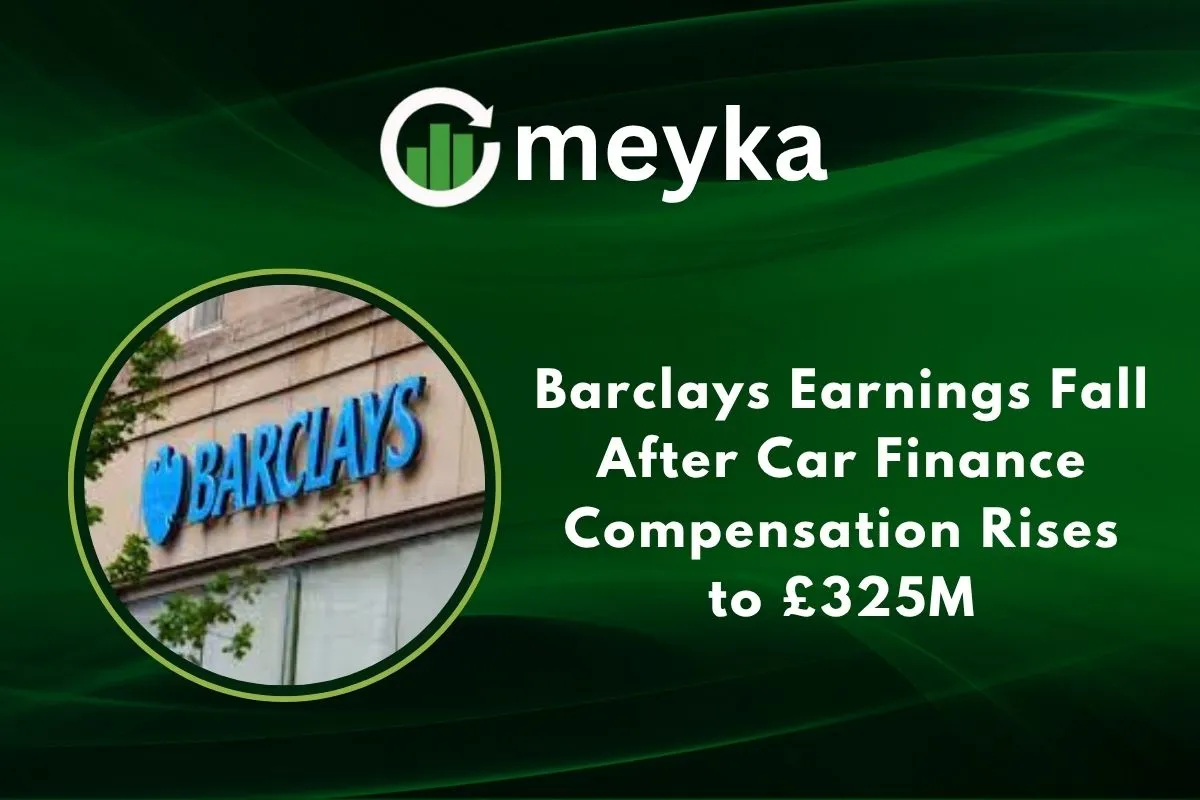Barclays Earnings Fall After Car Finance Compensation Rises to £325M
We’re looking closely at Barclays PLC, one of Britain’s major banks, and a recent earnings update that grabbed headlines. In the third quarter, Barclays reported a pre-tax profit of £2.1 billion, down about 7 % from the same period last year. The big reason? The bank raised its provision for compensation tied to old car-finance deals to £325 million.
We’ll walk through what’s behind the numbers, how the motor-finance issue is evolving, how Barclays is responding, and what it all could mean ahead. We’ll keep things clear and inclusive so that anyone can follow along.
The Numbers: What Changed and What It Means
When we dig into the numbers, some clear facts emerge.
- For Q3 (July-September), Barclays made a pre-tax profit of around £2.1 billion, a drop of 7 % year-on-year.
- The bank has increased the compensation provision for historic motor-finance issues by about £235 million, bringing the total to £325 million.
- Importantly, Barclays says if you exclude this one-off charge, the underlying profit actually rose by about 4 %.
- At the same time, Barclays announced a £500 million share buy-back, signaling strength despite the headwind.
What does this mean? Essentially, the headline profit drop was driven largely by the compensation charge. Underneath, Barclays still has momentum. But the extra set-aside shows there are legacy issues dragging on performance and investor confidence.
The Context: Motor-Finance Redress and Regulatory Background
To understand the issue, we need context.
The UK’s motor-finance market has been under scrutiny. Many dealers earned undisclosed commissions when arranging loans. The regulator, Financial Conduct Authority (FCA), is reviewing whether such practices were unfair.
Barclays exited motor-finance new business some years ago but still holds legacy contracts, and thus remains exposed. Other banks also face large potential redress bills. That places Barclays within an industry-wide risk.
In short, the charge is less about current lending and more about cleaning up past business practices. For Barclays, it’s about resolving a legacy issue so the future is cleaner.
Barclays’ Response and Strategic Implications
How is Barclays handling this?
Firstly, management emphasized that the additional charge reflects a best estimate of cost for now, not the full picture.
Despite the hit, the bank raised its full-year guidance on return on tangible equity to over 11 %.
Also, the buy-back of £500 million shows confidence and a desire to reward shareholders now, not later.
What are the strategic implications?
- By dealing with the legacy redress, Barclays clears the path for growth.
- The underlying business segments (UK retail, US consumer, investment banking) must pull their weight.
- Investors will watch whether further charges appear or if this truly marks the end of major legacy costs.
- Barclays’ ability to balance risk (legacy issues) with opportunity (growth, shareholder returns) will matter.
Risks and Opportunities Ahead
Risks
- The “£325 million” figure is an estimate. There’s a risk it may rise if the redress scheme widens or legal outcomes go against the bank.
- Barclays also revealed a £110 million hit linked to the U.S. lender Tricolor Holdings, highlighting exposure to private credit and other risks.
- Macro-economic issues: interest rates, regulatory changes, and tax burdens could affect the bank’s profitability.
Opportunities
- The underlying business looks strong: Barclays reported growth in income in key areas (UK banking +16 %, US consumer +19%) in the quarter, excluding the redress charge.
- The share buy-back and raised guidance send a positive signal to investors: Barclays is confident of its trajectory.
- If the redress issue does not escalate, the overhang may fade, and the bank can trade more on growth than clean-up.
Conclusion
In summary: Barclays’ profit drop is more a signpost than a crisis. The bank faces a sizeable one-off charge (£325 million) tied to historic car-finance issues, but beneath that the momentum remains. The management response (raising guidance, buying back shares) suggests Barclays is comfortable with the underlying strength of its business.
But vigilance is required. Future costs, market shifts, and regulatory pressure could still impact performance. For shareholders and watchers, the key question is: will the legacy drag fade, or will new surprises emerge? If Barclays can navigate this phase cleanly, it may be ready to step into a more positive chapter. Until then, we watch closely.
FAQS:
Barclays is refunding money because some car finance customers were charged unfair extra costs. The bank is compensating them after UK regulators found wrong commission practices.
No, not everyone will get compensation. Only customers who took car finance loans with unfair commission deals or overpaid interest may receive refunds after review.
The car finance scandal involves dealers earning hidden commissions on loans without telling buyers. This made customers pay higher costs, leading to a big UK investigation.
Disclaimer:
The content shared by Meyka AI PTY LTD is solely for research and informational purposes. Meyka is not a financial advisory service, and the information provided should not be considered investment or trading advice.”






